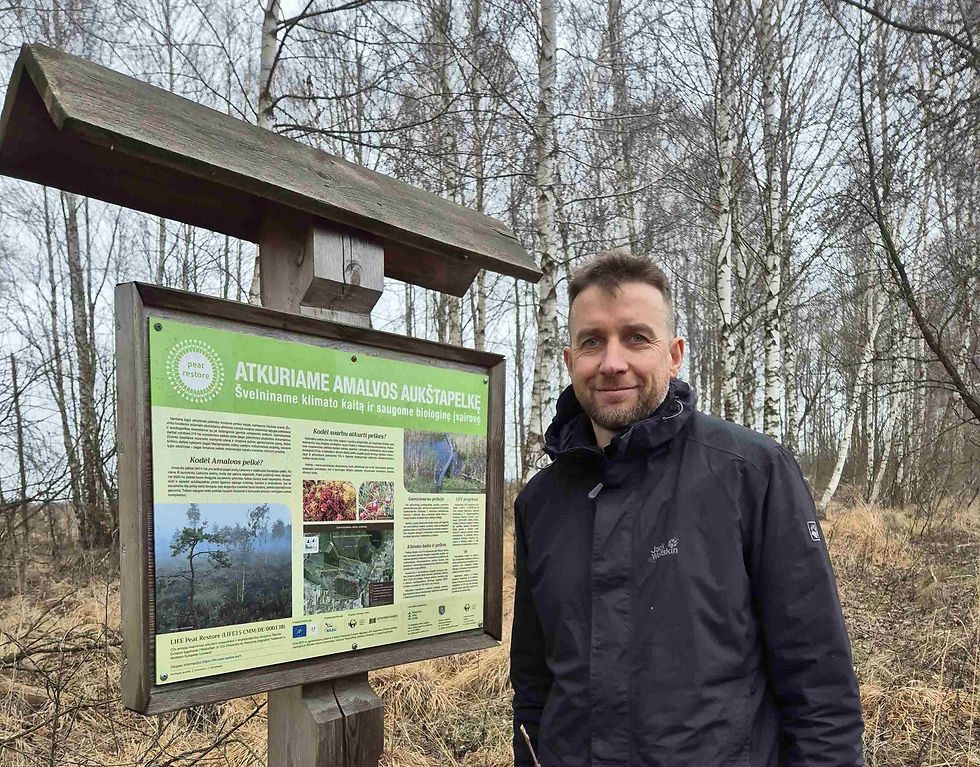A trip to the Tartoko swamp
- Jan 24, 2022
- 2 min read
On September 9, our team together with the staff of the Nordic Council of Ministers' Office in Lithuania visited the Tartoko swamp. This is a low marsh in the very town of Prienai, under the protection of the Nemunas Loops Regional Park. Only a few Lithuanian cities can be proud of the surviving wetlands, which are damaged by human activities, with extremely rare and protected species.
The Tartoko wetland is also one of the most rare lowland marshes in Lithuania. This swamp is also the habitat of rare and protected species - it grows in a dicotyledonous mud and a brown caterpillar, and a red-footed tulip has been observed. The bog is granted the status of a telmological (wetland) reserve.
At present, the Tartoko wetland and its biodiversity are still threatened by a system of drainage ditches installed during the Soviet era and still operating today (although flooded by volunteers - beavers). In the dehydrated wetland, the decomposition of the peat layer takes place, making the wetland a major source of greenhouse gases.
The lack of human care is also detrimental to wetland biodiversity. In the lowland damaged by drainage and therefore unable to survive without human care, new, non-typical species are emerging, and the swamp grows with woody vegetation and reedbeds. They are gradually displacing protected plant species.
Together with the supporters of the restoration of the hydrological regime of the wetland, we aim to reduce these threats in the office of the Nordic Council of Ministers in Lithuania and the Public Institution Start-up Platform Rockit. During the project, we will restore the hydrological regime of the wetland by damming the ditches that drain it, clean the wetland from woody vegetation, monitor the water level of the wetland and seek to ensure that the local community takes care of the wetland.
In support of the restoration of the hydrological regime of the Tartoko wetland, the Office of the Nordic Council of Ministers in Lithuania and the Public Institution Start-up Platform Rockit seek to compensate for the CO2 footprint of their activities.








Comments